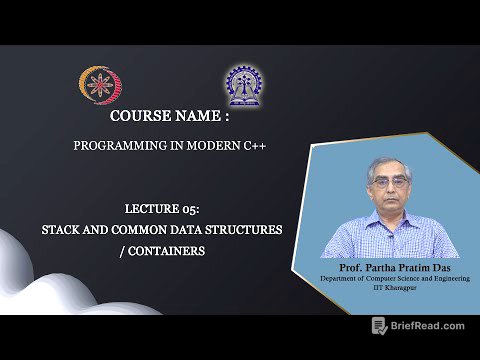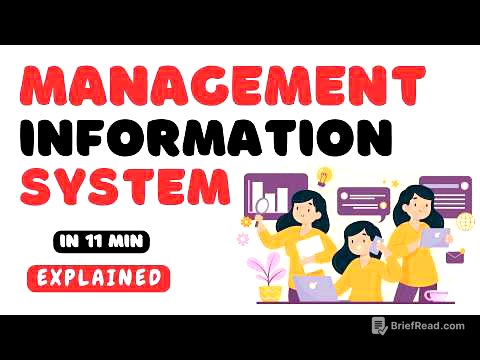TLDR;
The video discusses the increasing competition and challenges in today's world, attributing them to a combination of factors including the plateauing of IQ levels, automation, and wealth inequality. It explores how these issues contribute to political polarization and societal struggles. The video suggests that Universal Basic Income (UBI) and a widespread adoption of the metaverse are inevitable solutions to address these problems, potentially leading to a future where most people live primarily in virtual worlds.
- The world has become more competitive due to factors like increased applicants for top universities and competitive job markets.
- Automation and AI are displacing jobs across the IQ spectrum, leading to wealth inequality.
- Political correctness hinders open discussions about intelligence and aptitude, leading to inefficient education systems.
- The future may involve UBI, a billionaire class, and widespread adoption of the metaverse as a means of escape and entertainment.
Introduction: The State of the World [0:00]
The speaker begins by noting the decline in global happiness and the increasing difficulty of life for many people. Contrary to economist John Maynard Keynes' prediction of 15-hour work weeks by 2028, people now work more than 40 hours a week, often juggling multiple jobs. The speaker uses their experience in quant trading to illustrate how competitive various industries have become, with more rigorous and demanding entry requirements. This increased competition extends to university admissions, where acceptance rates at top institutions have significantly decreased.
The Problem of IQ [1:24]
The core issue is related to intelligence quotient (IQ). While IQ levels steadily increased over the last century due to the Flynn effect, they have plateaued since the 1990s. The speaker suggests that the jobs of the future require increasingly higher IQs, but society's collective intelligence isn't keeping pace. The speaker argues that simply increasing education levels is not a solution, as intelligence is largely immutable.
Automation and the Future of Work [3:21]
The speaker uses the examples of Microsoft Excel and AI-driven code editors to illustrate how automation increases productivity but also raises expectations. While these tools make workers more efficient, the benefits disproportionately accrue to the owners of firms, exacerbating wealth inequality. Automation is gradually eliminating jobs across the IQ spectrum, with software and AI advancing more rapidly than hardware and robotics.
Political Correctness and Education [7:37]
Politicians often avoid discussing the role of raw talent and intelligence, instead promoting the idea that everyone can learn to code or pursue higher education. This political correctness leads to an inefficient education system where many individuals who lack the aptitude for complex work still attend college, accumulate debt, and struggle to find suitable employment. The speaker contrasts this with the Asian model, where intelligence is assessed early on, and individuals are tracked accordingly.
Wealth Inequality and Ideologies [11:44]
The thinning of the middle class due to automation leads to increasing wealth inequality, which manifests in various ideologies. Progressive leftists focus on cultural equality as a proxy for economic equality, while the right, exemplified by Trump, seeks to bring back manufacturing jobs. However, the speaker believes that both approaches are incomplete or flawed.
The Inevitable Solution: UBI and the Metaverse [14:33]
The speaker suggests that Universal Basic Income (UBI) is an inevitable solution, as AI and automation will render a large portion of the population unemployable. The remaining ways for people to make money will likely involve entertaining the ultra-wealthy. The speaker also predicts that most people will escape into the metaverse, where they can create their own worlds and identities.
The Billionaire Class and the Future [17:05]
The actions of tech billionaires offer clues about the future. Many are investing in doomsday bunkers, suggesting concerns about potential catastrophic events. However, assuming a 95% probability that the world will be fine, the speaker envisions a future where most people live in small Tesla homes, receive deliveries via drones, and spend their time in the metaverse. This virtual world will offer an escape from the limitations of the real world, providing a sense of status and fulfillment.
Preventing Riots and the Metaverse [21:21]
The metaverse serves as a means of preventing social unrest by providing an outlet for young people to achieve status and fulfillment. The speaker believes that this plan will likely work, leading to a future where the vast majority of society lives in the metaverse, while a smaller percentage, the billionaire class, enjoys the real world. Despite sounding dystopian, the speaker believes that this future will ultimately make people happier than they are now.








